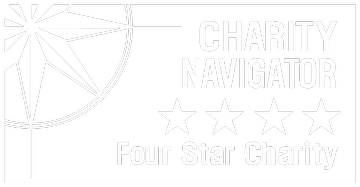Our Work In Maine
The Problem
The loss of the American chestnut tree (Castanea dentata) is often cited as one of the worst ecological disasters in modern times. An estimated 4 billion chestnut trees, one in four trees in our eastern forests, were killed as a result of a fungus, the chestnut blight (Cryphonectria parasitica). This fungus was native to Asia but was accidentally brought to New York in 1904. It quickly spread and within a few decades most American chestnuts lay dead on the ground. The species and communities that depended upon them for food and shelter were diminished in turn.
When the fungus girdles and kills the trunk of the tree, the root often survives and sprouts in the forest understory. The tree’s ability to root sprout is the only reason wild chestnuts persist in our forests today. The sprouts grow into trees but rarely mature to the point of flowering and producing seeds. Thus, the blight prevents the American chestnut from reproducing and evolving as a species. Without our intervention the chestnut is unlikely to reclaim its former territory and its outsized role in forest ecology and human culture.
Our Mission
The mission of The American Chestnut Foundation (TACF) and its 16 chapters is to return the iconic American chestnut to its native range. In our attempts to restore this species, we are blazing a trail to guide future restoration efforts for other trees in trouble.
Our Approach
The goal of the TACF breeding program has been to move the gene for resistance, which occurs in the Chinese chestnut, into the American chestnut’s genome. This goal has been approached in two ways: a standard back-cross breeding program and genetic engineering.
Backcross Breeding
The Maine Chapter of TACF is one of many chapters engaged in a long-term back-cross breeding program with support from TACF’s staff and research farm in Meadowview, VA. Employing Maine wild chestnuts as mother trees, we aim to produce a blight resistant tree that is well adapted to Maine growing conditions.
We have long expected to see blight resistance work its way into the American Chestnut genome but this goal has remained elusive. Modern gene technology recently revealed that the combination of genes that confer resistance is more complicated and harder to pass along through standard back-cross breeding. After growing and tending hundreds of thousands of young chestnut trees over two decades, we have yet to produce a reliably blight tolerant tree that retains its distinctive American features. We have, however, learned a lot about chestnut trees and identified certain trees that appear somewhat less vulnerable to severe blight infection.
Biotechnology
A transgenic approach to blight tolerance has been underway almost as long as the back-cross breeding program. One benefit of this approach is that the American chestnut genome does not become contaminated by the many extraneous Chinese chestnut genes that come with traditional breeding.
Managed by the State University of New York at Syracuse (SUNY Syracuse), transgenic research to date has been focused on moving a gene found in wheat, bananas, strawberries and many other human foods, into the American chestnut. This gene is effective at protecting plant tissues from invasion by fungi that produce oxalic acid as part of their infection process. The gene produces an enzyme that breaks down the acid. It seems to confer some resistance to the fungus that causes chestnut blight.
Tom Klak, from the University of New England (UNE) in Biddeford Maine, has devoted years to advancing this approach. Dr.Klak has developed ways to speed the growth rate of chestnut seedlings in the greenhouse to produce pollen much faster. In 2021-2023, with help from his students, TACF volunteers, and generous land owners, Tom established a transgenic research orchard in Cape Elizabeth Maine, under special permit by federal regulators, to monitor the performance of the Darling 58 transgenic chestnut under field conditions.
After careful study Dr. Klak and Dr. Han Tan from the University of Maine at Orono, reported some problems with Darling 58. Their lab and field observations, along with reports by other researchers, led to the decision by TACF in December 2023 to pull its support for deregulation of the Darling line for restoration purposes. To read more details go to https://tacf.org/darling-58-performance/
Although this is a setback for advancement of the Darling 58 tree, much has been learned along the way that holds promise for development of a new and better transgenic chestnut. The technology and tools for understanding and testing for blight resistance have advanced dramatically in recent years. These hold the promise for more efficient progress in developing a blight resistant chestnut.



